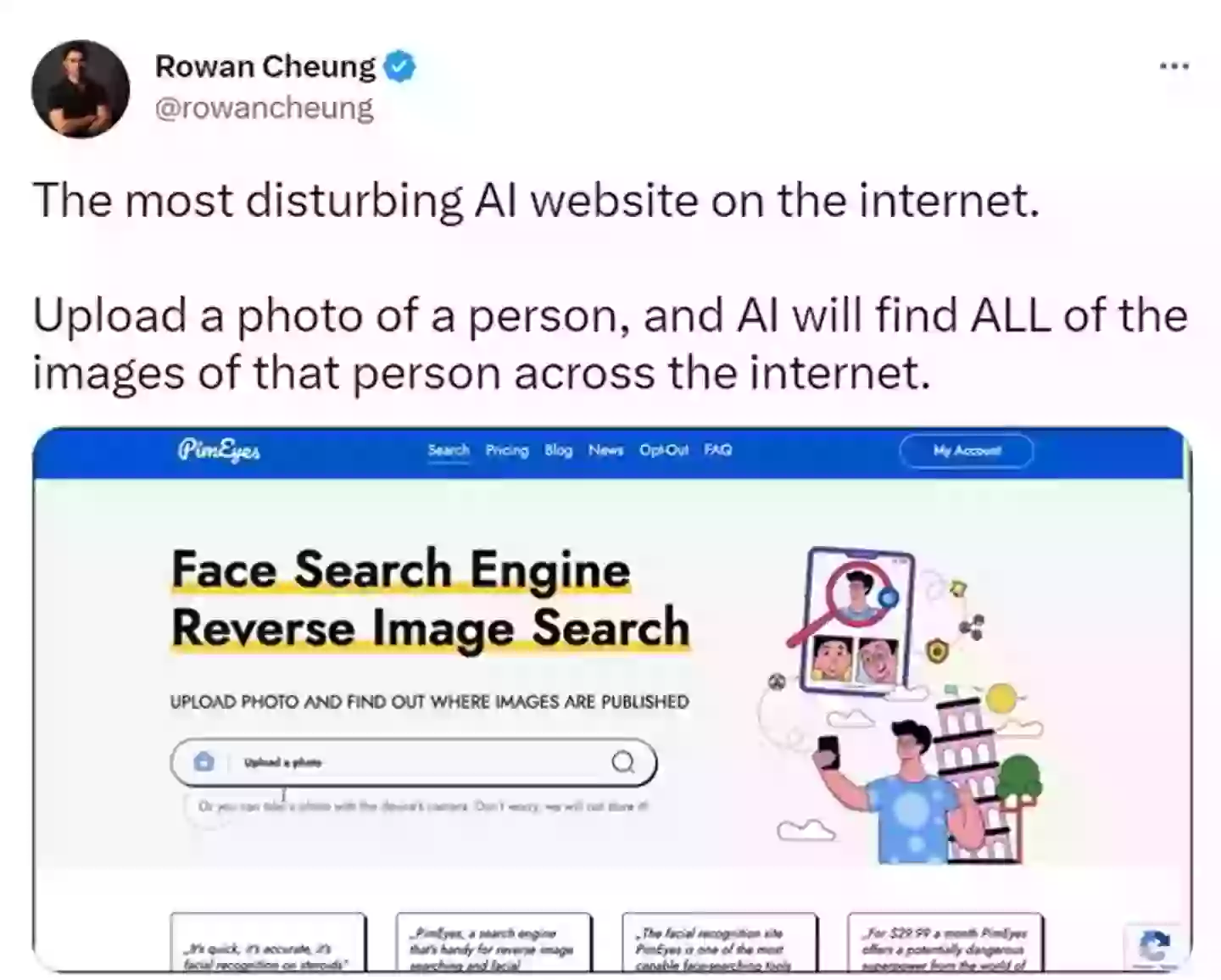
Artificial intelligence is equally as fascinating as it is scary.
People are jumping on the ChatGPT bandwagon after it broke the record to become the fastest-growing user base ever and reportedly reached over 100 million active users in January alone.
The bot can respond to questions in a human-like manner and understand the context of follow-up queries, much like in human conversations.
Advert
It can even admit its own mistakes or reject inappropriate requests.
Despite such technological advances, there will always be an argument for giving us more information than we actually need, such as image search site PimEyes, which uses AI to identify any other pictures of you that are online.
It has been dubbed 'the most disturbing AI website on the internet'.
The way it works is that you give the site a photo of yourself and it uses that picture to collect all of your snaps that are supposedly available on the internet.
Advert
While some thing it's pretty cool, others have called it 'a stalker's dream'.

But it's worth mentioning that when a colleague of mine tried out the site, they said: "It's perhaps better at finding your doppelgangers than it is at tracking down every picture of you on the internet, but it is incredibly fast.
"The first two were pictures of me, though the remaining six were images of other people who shared some similar facial features, mostly the eyebrows and the beard."
Another person thought the site was 'disturbing but also extremely valuable' and praised it for 'finding who has used my face without my consent' so they could order websites to take down the pictures.
Advert

Well, one man who is seemingly concerned about the rapid rise of AI is Elon Musk.
The face of Tesla and SpaceX happens to be part of a group of tech chiefs who want to pause the development of AI.
The likes of Apple co-founder Steve Wozniak and Skype co-founder Jaan Tallinn have signed an open letter demanding that all labs training AI systems stop for at least six months.
"Recent months have seen AI labs locked in an out-of-control race to develop and deploy ever more powerful digital minds that no-one – not even their creators – can understand, predict or reliably control," the letter reads.
Advert
"Powerful AI systems should be developed only once we are confident that their effects will be positive and their risks will be manageable."
They have called for researchers to focus on making sure the technology is accurate, safe and transparent, though others feel that with AI tech such as ChatGPT, we're already too far down the rabbit hole.
Topics: AI